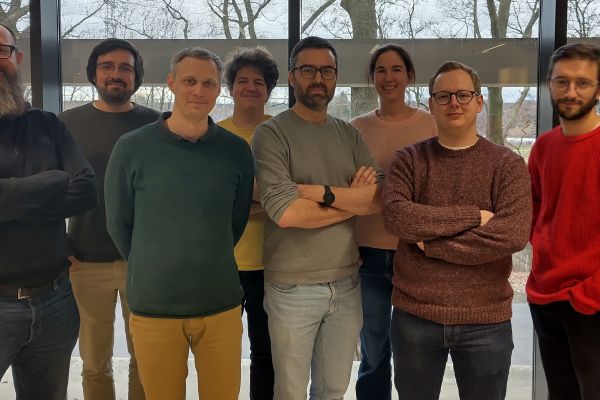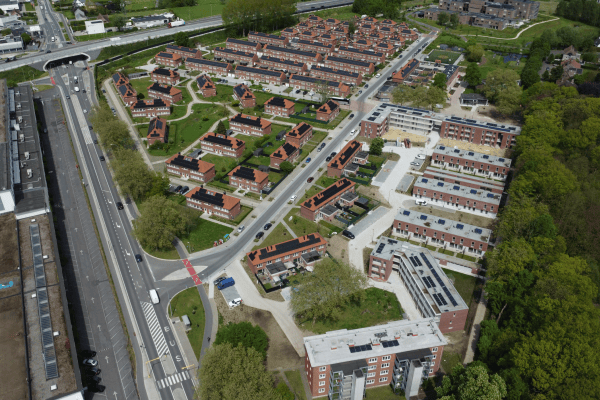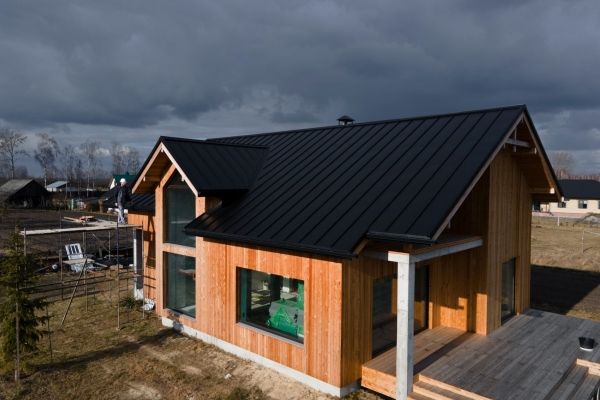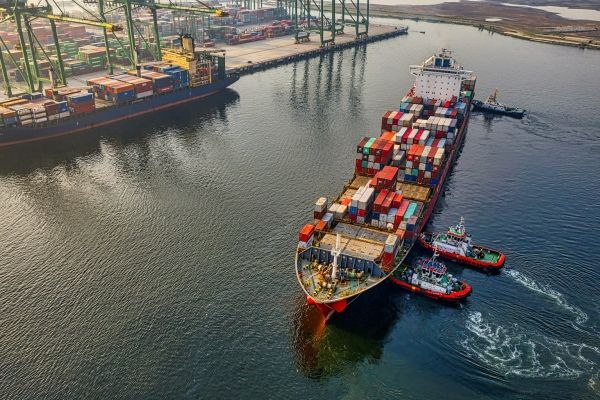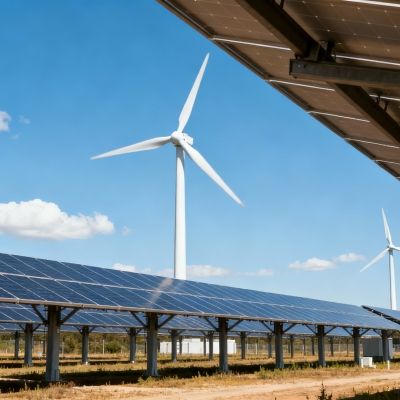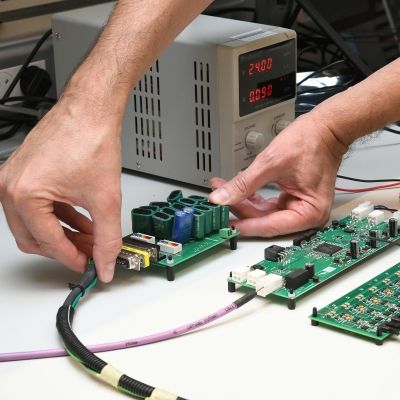We model better together: EPOC, PATHS 2050 and the future of Belgian energy
In the autumn of 2022, VITO/EnergyVille unveiled PATHS 2050 | The Power of Perspective – a platform where more than 200 researchers collaborated to chart data-driven roadmaps and potential routes for reaching a climate-neutral Belgium by 2050, at the lowest societal cost. The groundbreaking platform is deeply entrenched in the results generated by the EPOC 2030-2050 project – a five-year project that, also led by VITO/EnergyVille, brought together researchers from no less than 13 Belgian research institutions, and ended successfully in June 2023. The perfect moment to find out how EPOC 2030-2050 is contributing to a new view of our future energy in Belgium.

At the basis
How will our energy system evolve in the coming years and decades? Is a safe, affordable and carbon-neutral energy supply possible by 2050? And what can or needs to be done for that? These are the core questions that formed the motivation for the EPOC 2030-2050-project, and which researchers from no less than 13 Belgian institutions have been considering for almost five years. And in doing so, the project also delivered something new, thanks to EPOC 2030-2050, Belgium now has a virtual expertise and data centre on energy. ‘Our overarching energy model brings all the relevant sectors together. Moreover, it is tri-regional: we can separately zoom in on Brussels, Flanders and Wallonia,’ says project coordinator Pieter Vingerhoets from VITO/EnergyVille.
EPOC 2030-2050
Knowledge of and expertise in energy have always been highly fragmented in the Belgian context. Every scientific institute worked in its own way. For example, it used its own energy model to simulate the future energy system, and thus to study it. Besides that, studies – such as those ordered by policy-makers – often zoomed in on one or more components of that system too, without viewing that system as a whole. And then, of course, there is the complex Belgian organisational context: the authority over energy policy is distributed among federal and regional governments.
EPOC 2030-2050 ended this fragmented approach. The initiative – among the first supported through the federal
Energy Transition Fund – brought together 13 Belgian research institutes over the past five years. The aim? To develop energy models together in order to study the future of energy in Belgium, including all the relevant sectors and across regional borders – with the ability, though, to zoom in on Brussels, Flanders and Wallonia separately too. The project was coordinated by VITO/EnergyVille and ran from October 2018 to June 2023.
TIMES-BE: the Belgian energy model
The core of the project was what is called the TIMES-model: an energy model that seeks cost-efficient solutions based on technical or economic preconditions. These may be security of supply, or carbon-neutrality by 2050, while including affordability for citizens and companies. The model was adapted to the Belgian energy context, and to the three regions as well. ‘TIMES-BE, our Belgian TIMES-energy model, is indeed tri-regional: it can also be used specifically for Brussels, Flanders and Wallonia,’ says project coordinator Pieter Vingerhoets. ‘This is very important, as there are of course significant differences between the regions. Flemish industry differs from Walloon, for example, and the same applies to mobility and transport.’ At the same time, the overarching Belgian TIMES energy model takes account of interactions between the regions in terms of energy. ‘In that sense, you can view it as a helicopter model.’ And that helicopter aspect can also be found in the way in which the Belgian TIMES energy model brings the various relevant sectors together. ‘In contrast to earlier modelling work, TIMES-BE now takes more account of important, energy-intensive industries – such as the chemical, cement and steel industry.’ The integrated nature of the Belgian TIMES energy model therefore allows us to do direct modelling work for specific regions or sectors. The consequence is results that are objective, and very reliable, precisely because EPOC 2030-2050 also enjoys broad support. Vingerhoets: ‘As an energy expert, I personally find this the most important gain from this project: for the first time, it brought our entire Belgian research community together.’
PATHS 2050 | The Power of Perspective
In the autumn of 2022, VITO/EnergyVille launched PATHS 2050 | The Power of Perspective – a platform where more than 200 EnergyVille researchers collaborated to chart data-driven roadmaps and potential routes for reaching a climate-neutral Belgium by 2050, at the lowest societal cost.
The PATHS 2050 and EPOC 2030-2050 projects are both founded upon the TIMES energy model and are closely interconnected: the industrial backbone for the platform consists of the modelling as developed within the EPOC project, and in this sense the groundbreaking PATHS 2050 project is – at an overarching Belgian level – building upon the unique tri-regional results from EPOC 2030-2050.
Virtual expertise and data centre
One example of data that the TIMES-energy model can produce is investments needed for reducing greenhouse gas emissions. For the regions, it can help them achieve their climate-neutrality ambitions. The same applies for industrial sectors and their attempts to become more sustainable. But the energy model is useful for many more reasons. Policy-makers can use it to help sketch out the future of the Belgian energy system (or parts of it). And for companies and sectoral federations – such as Febeliec, which commissioned VITO/EnergyVille for the PATHS 2050-research – it can supply crucial information for strategic decisions. ‘Energy-intensive companies would prefer to know where they stand in terms of energy supply today, rather than tomorrow,’ says Vingerhoets. ‘Take electricity prices, for example. In recent years, this has been highly volatile, and how this will evolve remains fairly unclear. The price also depends upon policy decisions, such as taxes, tariffs and the market model used.’ Partly due to this benefit to industry, the EPOC partners will continue to update their TIMES-BE-model in the coming years, so that questions from the business world can continue to be answered.
The EPOC collaboration thus leaves behind a virtual expertise and data centre in terms of energy, which will continue to be a breeding ground for new joint ventures after the project ends. There is large interest in this kind of service provision, as it happens, which was revealed in the response from several major stakeholders like essenscia, Fluxys, Engie and the FPS Economy, which all turned up on 9 May 2023 at Thor Park, Genk, for EPOC’s closing event.
We model better together
Good collaboration between stakeholders is at the heart of an energy system functioning optimally. And this is no different for EPOC 2030-2050. ‘We’ve all had to get out of our comfort zone as energy researchers,’ says Vingerhoets. ‘Thanks to the project, EnergyVille/KU Leuven and the University of Liège are now using the same model for the electricity grid, for example. And in terms of analysis of industrial clusters, we’ve since been joining forces with energy experts from the University of Ghent.’ Aside from that, VITO/EnergyVille is also collaborating on this international dimension within the TRILATE project with comparable institutes from Germany (DECHEMA) and the Netherlands (TNO). This venture also came about during EPOC 2030-2050, and is being supported through the Energy Transition Fund too.
Thanks to these various collaborations, the Belgian TIMES-energy model can now be fed with far better, more accurate data than its predecessors tools. For example, VITO/EnergyVille integrated more and better data for buildings into the model. KU Leuven/EnergyVille, on the other hand, developed some new techniques for modelling security of supply. And UMons (the University of Mons, which was also an EPOC project partner) built predictive algorithms to better identify strategic behaviour in the energy markets. Vingerhoets: ‘All these different collaborations enable us to solidly support energy research with science – these might be roadmaps for governments or studies for sectoral federations.’ And the enthusiasm with which PATHS 2050 | The Power of Perspective was received in late 2022 is indeed the perfect example of that.




